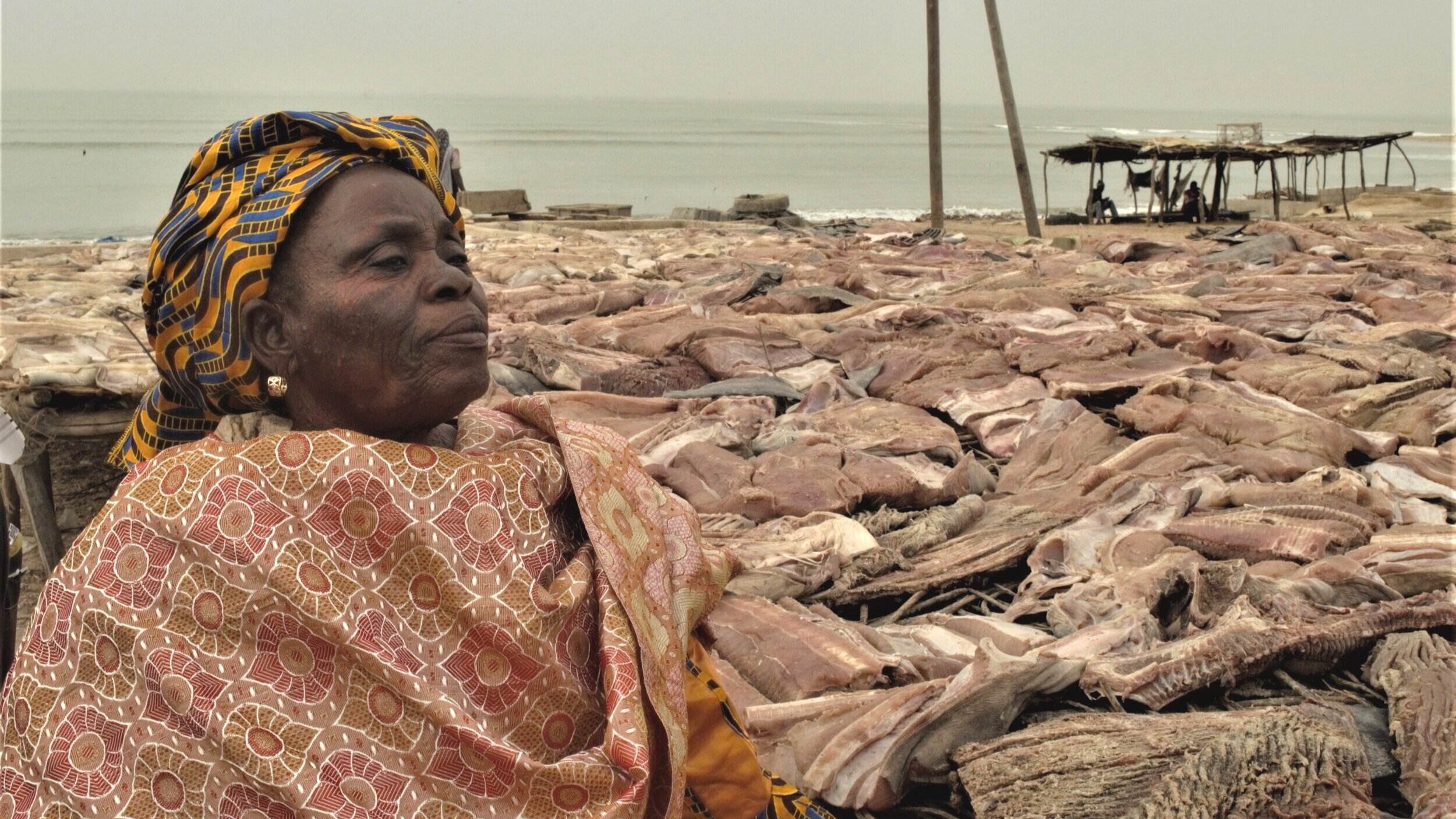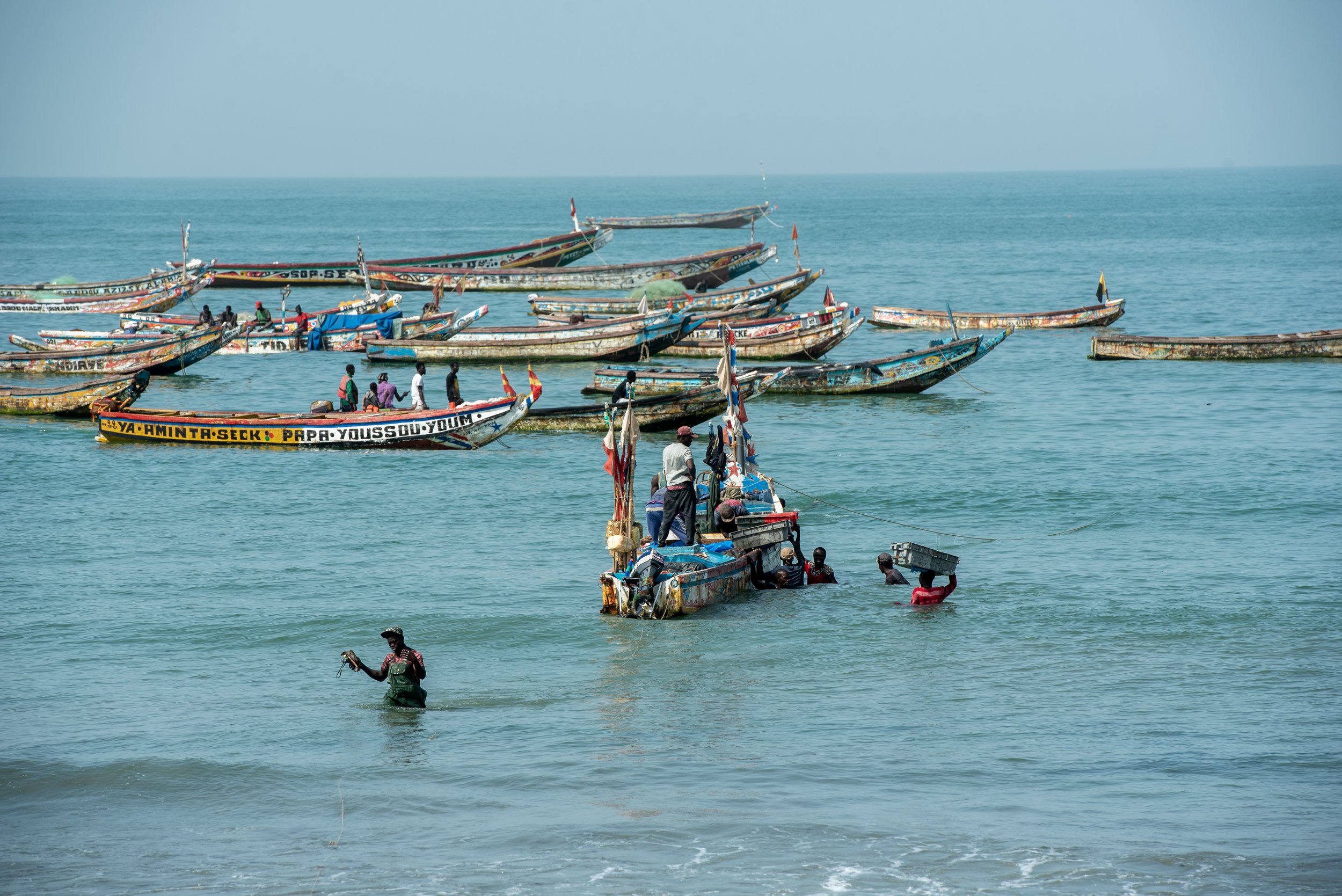The EU seafood market is one of the biggest and the most lucrative market in the world for seafood products.
EU trade and imports policies, like EPAs, GSP, among others, have an impact on food production systems in Africa.
The current EU Farm to Fork strategy, which seeks to use its international cooperation to build global sustainable food systems, largely ignores seafood production in general, and pays no attention to the role of artisanal fishermen in sustainable food systems in Africa nor their contribution to poverty eradication.

Photo: Joëlle Philippe/CFFA
“Recognizing the important contributions of artisanal and small-scale fisheries to employment, income and food security, States should appropriately protect the[ir] rights [...], to a secure and just livelihood, as well as preferential access [...] to traditional fishing grounds and resources””
what are we doing?
We monitor EU trade and import policies that have an impact on the livelihoods of artisanal fishing communities in Africa;
We raise awareness about the role of African artisanal fisheries ensuring food security of their communities and region; and
We strive to provide a space for dialogue between these stakeholders and EU decision-makers.

Eu food policy coalition
We are members of FPC, a network of civil society organizations advocating for sustainable food systems at the EU level.
latest publications
The EU should guarantee rights-based and equitable decision-making processes about ocean uses, ensuring the protection of the most vulnerable facing more powerful blue economy industries. Taking into account the role of artisanal fisheries in food security and poverty eradication in developing countries, the EU should also support SSF and sustainable fisheries management in its ocean partnership with African countries.
SSF are threatened by competition from foreign industrial fleets, declining fisheries resources, and management measures that undermine its sustainable development. While EU-funded projects aim to address these issues by promoting sustainable fisheries governance, structural challenges, including inadequate enforcement of the Inshore Exclusion Zone (IEZ), remain.
The Joint Committee of the EU-Mauritania SFPA will meet in Nouakchott from 4 to 6 December 2024. In this article, the author makes a number of recommendations in the light of the conclusions of the Fishery Committee for the Eastern Central Atlantic (CECAF). In its latest report, CECAF described the catastrophic situation of shared stocks of small pelagics and recommended a substantial and immediate reduction in fishing effort of 60% for flat and round sardinella.
Although the protocol does not allow European fleets to fish for small pelagics because they are overexploited, at least 4 European vessels have reportedly reflagged to Guinea-Bissau and are fishing for these species in the region, jeopardising the region's food security and competing with small-scale fisheries.
With Senegal’s yellow card, fisheries agreement negotiations between the EU and Senegal are at a standstill. Meanwhile, the EU will negotiate the renewal of its SFPA with The Gambia, whose waters are bordered on both sides by Senegal’s. How would access to the Gambian waters be used by EU fleets, at a time when they may be barred from Senegal waters?
In this article, the author underscores the ecological and social impacts of Norwegian intensive salmon farming, including the impact on food security in West Africa. The author remarks that while on the one hand, the European Union promotes fish for human consumption in Africa, on the other, the EU also opens wide its market gates for Norwegian farmed salmon, which is fed West African fish.
In this article, the author reviews a recent report published by Poseidon and funded by German govenrment which looks at how to increase the benefits of EU SFPAs in African countries, with a particular emphasis on small-scale fisheries, gender equity and food security.
JOINT LETTER: 11 African artisanal fisheries organisations and development NGOs send a letter to Commissioners Virginius Sinkevicius and Jutta Urpilainen asking them to use the crucial voice of the EU through Sustainable Fisheries Partnership Agreements and the EU-Africa partnership to address the impending food crisis in the West African region linked to the fishmeal and fishoil production.
In a contribution sent to the European Commission, co-signed with 8 other civil society and environmental organisations, we highlight the most important points to be taken into account for the renewal of the protocol, to ensure that the fishing agreement has a positive impact for small-scale coastal fishing communities.











As the European Commission launches a campaign to promote the consumption of EU aquaculture products, several NGOs warn of worrying developments in the aquaculture sector and recall that some forms of aquaculture are harmful and impact the livelihoods of small-scale fishing communities across the world.